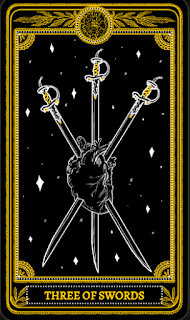 |
| Sidney Sime |
I am running a B/X/LotFP Caverns of Thracia campaign in a drop-in format at my local FLAGS. With 8 sessions under my belt so far, I've had players come up with some really clever ways of getting around combat encounters against with overwhelming odds or high-level adversaries. Below are 3 examples that stand out in my mind all performed by players with zero D&D experience and 1st level characters in an OSR system:
SITUATION 1- Clever use of the first level spell Message
In the very first game session, I had 10 players approach the ruins of Thracia and become alerted to the beastmen entrance A. While 7 of those players set up for an attack, the remaining 3 (elf, thief, wizard) swept around to entrance B. When confronted by the Death Cultist there, one thief player attempted to pawn herself off as a new prophetess of the cult with orders from their god to attack the beastmen at A.. Of course, the cultists are skeptical, but then the wizard uses their only 1st level spell slot of the day to cast Message at the cultist lead guard and pretend to be the voice of their diety backing up the thief's claim. I let that fly as the DM, and the cultists ran off to confront the beastmen at A. The combined efforts of a 1st level thief talking and 1st level wizard casting Message equals 10 dead.
SITUATION 2- Defeating a doppelganger with poison from a dead hireling
Hireling gets jumped by a spider, fails a saving throw, and dies by poison. After the defeat of said spider, this elf player pulls out one of the two bottles of wine he started with, downs it, and then uses it to collect some of the poison. Later, they unleash two doppelgangers who immediately mimic perfectly the party members they first meet. To solve this problem the 1st level elf player asks, "So does this monster copy everything Emma is doing?" Yes. The player then proceeds to cast Detect Magic to determine which Emma is the monster. Maybe not the exact wording of the spell, but as the DM, I'll let it pass. Then the elf player pulls out both identical bottles of wine, then hands the wine to the real Emma and poison to the doppelganger. They both drink- doppelganger fails the save vs. poison- dead. Not a sword is drawn.
SITUATION 3- Using a mirror to defeat
After the 2nd level dwarf is downed in combat with the guardian, the players have to choose a new champion. Other than the dwarf, no one is really in a good position to be locked in a one-on-one fight that locks out any other participant. Again the guardian calls out, "Choose your champion!". At that point, the same elf player as above grabs the cleric's mirror runs up to the champion and points toward its reflection, "This is our champion." I check my notes just to make sure there is no qualifying statements about champion choice. Nope. Boom, champion "defeats" itself, falls into a rusted heap leaving a Sword, +1 behind. Again, a mirror and clever thinking allow a 1st level character to defeat a 5 HD monster.
This is why I love DM'ing an OSR game. Its really delightful to watch players come up with clever solutions. And I believe the presence of death and asymmetry aid in the natural selection of smart solutions. Certainly, combat is fun, but its situations like the ones above that get the most cheers and claps around the table.

